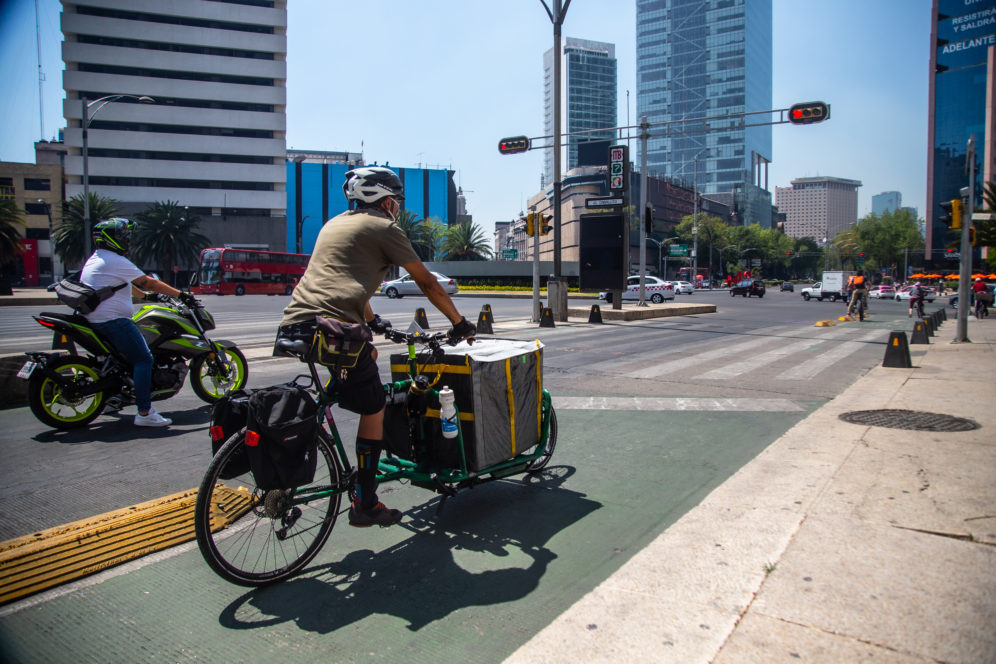
February 15, 2022
Mexico’s Ideamos Program Shows Bicycles Are Moving More than People
For decades people in cities around the world have been using bicycles for so much more than passenger travel. Since the start of the COVID-19 pandemic, there has been a global uptick in bicycle, e-bike, cargo bike, and e-cargo bike use for the delivery of mail, medicine, groceries, meals, and other supplies. In India, for example, bicycle mayors led efforts to deliver essential goods to residents in need using bicycles: 725 volunteers served 2,500 people across 13 Indian cities.
The Ideamos Program is shifting how people in Mexican cities think about bicycles, promoting cycling as a resilient transport mode that improves access to essential goods through local deliveries.
Ideamos kicked off in January 2020 to promote a sustainable and inclusive mobility ecosystem in Mexico, and was well-positioned to help communities respond to the challenges presented by COVID-19 when the pandemic hit just a few months later. The program focuses on implementing pilots in collaboration with micromobility, vanpooling, carpooling, ridehailing and delivery service companies, local governments, and civil society organizations.
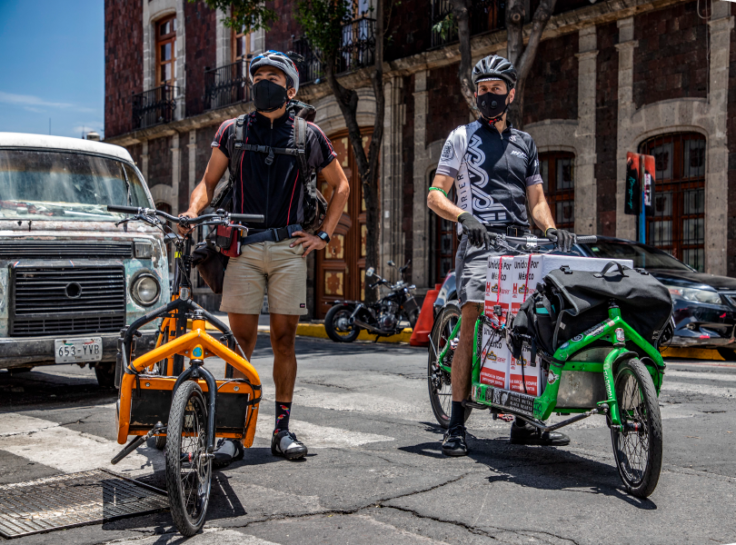
Four pilots were carried out between April and September of 2020. One of the most impactful was Rodando Ayuda, which brought together twelve separate organizations to deliver essential goods to vulnerable populations. The pilot lasted two months and reached more than 2,500 people, delivering more than 700 pantries (1 pantry = about a month’s worth of food and supplies for a family of 4) to families severely affected by the COVID-19 pandemic. Deliveries were carried out on bicycles, and reduced emissions by 74% compared to delivery by motorbike, and 78% compared to delivery by van. Overall costs were also 17% lower than if the deliveries had been made using motorbikes and vans.
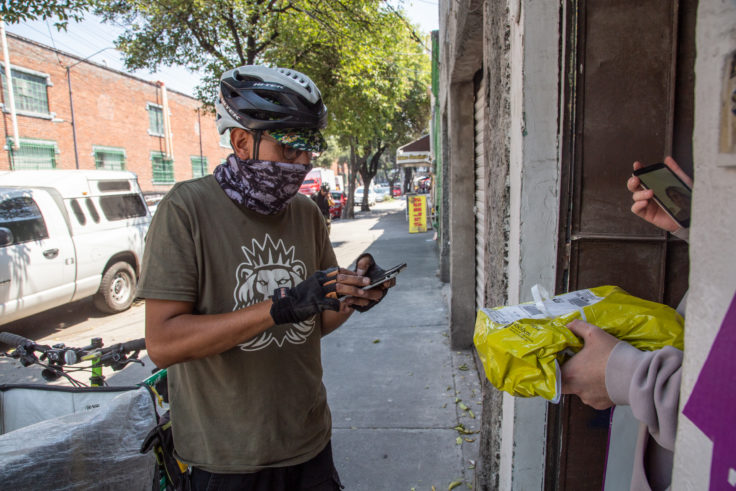
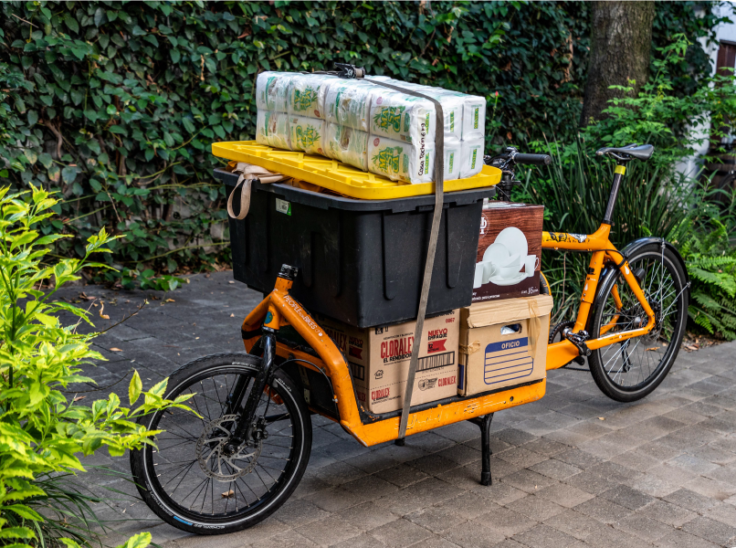
Lessons learned from Rodando Ayuda inspired a follow-up project, Rodando Juntas, in 2021. Recognizing that local delivery by couriers had become a critical mechanism for all types of people to access goods they might need, Rodando Juntas aims to further improve working conditions for the growing number of delivery people in the cities where the pilot is operating, while also promoting the democratization of delivery apps and the use of bicycles, including electric bicycles and cargobikes, for local delivery.
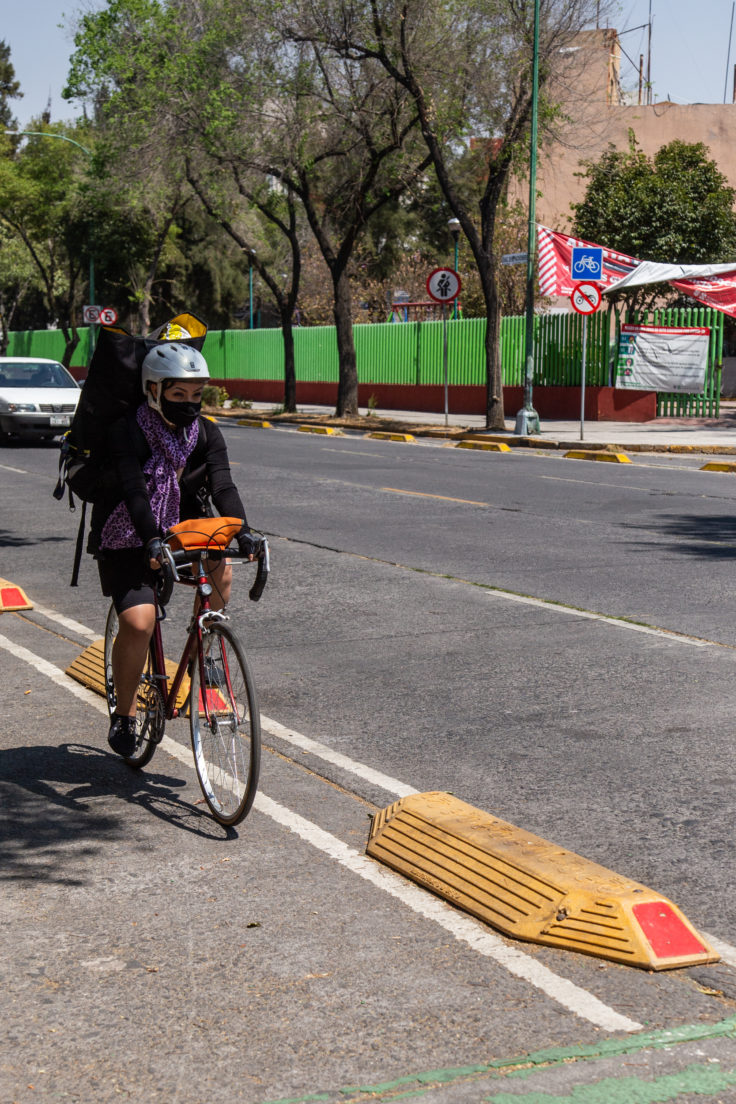
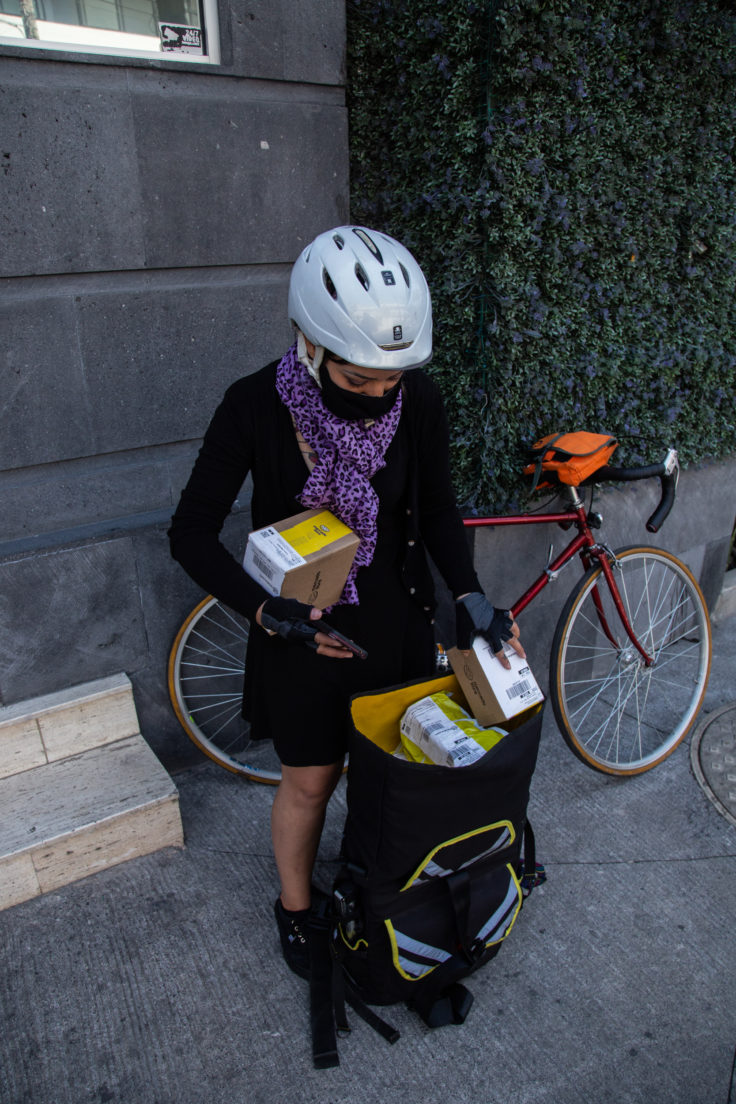
Ideamos launched four additional pilots in 2021, including VanCiclo, which aims to provide an alternative to car trips by adding cycle racks to shared vans. The pilot focuses on three vanpool routes: One with cycling infrastructure and two that are particularly challenging for cycling with hilly topography and no cycle lanes. This way, people can cycle for part of their trip, and take a shared van the rest of the way. The final pilot MOVIN brings together ten companies located along the Paseo de la Reforma Corridor– Mexico City’s Central Business District. The companies collaborated to create a mobility plan that encourages their employees to use sustainable modes offered along Reforma like pedestrian spaces, cycle lanes, and vanpool routes to commute to work. This plan will be implemented starting March 2022, and the pilot will run through November.
While the Ideamos pilots are, and have been, short and limited in scope, they are also relatively low cost and quick to implement.
By providing reliable, safe alternatives to vehicles, the pilots are demonstrating new possibilities and additional mobility options where they hadn’t been previously.
By adding bicycle racks to shared vans, the VanCiclo project allows people to go further by bicycle, perhaps rethinking the need to use a private car for what had previously been an unfeasible trip to make by bicycle. Building on Rodando Ayuda, the Rodando Juntas project promotes the rapidly-expanding cycle-based delivery sector, all while protecting the rights of cycle couriers. Notably, more and better-quality cycle lanes, combined with increased access to different types of bicycles, could further expand both personal cycling and the cycle delivery sector, yielding co-benefits such as reduced emissions, congestion, and traffic crashes as more trips are made using safe cycle lanes instead of vehicles. Indeed, several pilots have plans to scale up in the future for an even greater impact.
“Ideamos has a sustainability plan with specific actions to continue, replicate and/or scale the projects’ ideas,” says Eloy Gonzalez Madrazo, who leads the Ideamos program at ITDP Mexico. “For example, in Rodando Juntas, the goal is to constitute a federation of bicycle delivery cooperatives integrated to Coopcycle, improving their competitiveness and allowing them to add new co-ops autonomously.” Technical reports that detail the project goals, methodology, achievements, and lessons learned have been produced for concluded pilots, and a forum is planned for early 2023 to bring the program’s partners together to share findings and new ideas.
